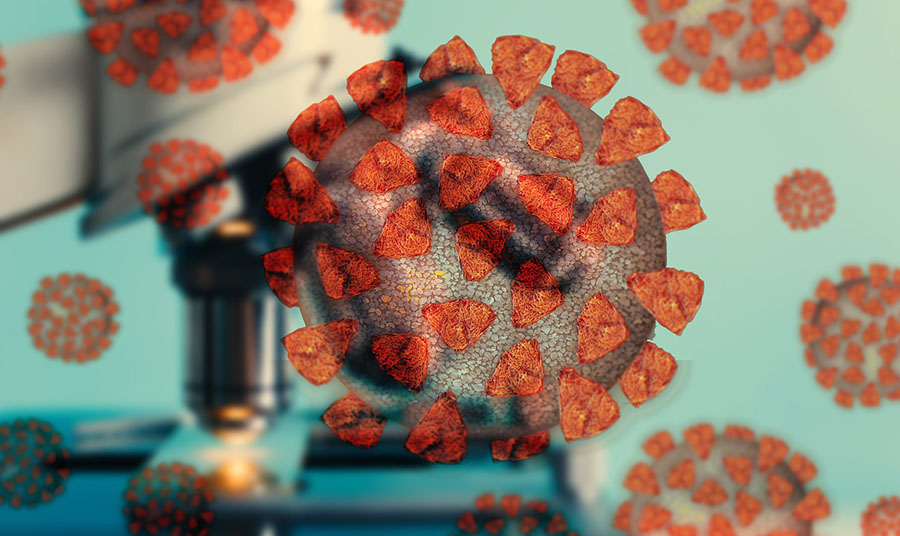The Life Sciences Report: The latest Scientific American Worldview Scorecard has ranked Australia No. 7 in biotechnology in the world, up from No. 10 last year. What is Australia's secret sauce?
Scott Power: In Australia, we have about 100 listed life science medical device/diagnostic companies. The sector is maturing. The weaker companies have disappeared. Well-established, sustainable businesses with approved products are generating more than enough sales to cover their operating costs. One of the keys to the maturation of biotech is that the Australian government directly funds early-stage research programs at universities. Spinouts from the university programs are attracting private money.
TLSR: Are there tax incentives?
SP: A couple of years ago, Australia introduced a research and development (R&D) tax incentive program. Companies undertaking R&D activities across the technology sector receive cash refunds on research expenditures. If a firm spends $1 on research, it gets about $0.30 back on its tax return. The credits fund clinical programs without having to tap investors.
"We like ImpediMed Ltd., which has an early detection device for lymphedema."
TLSR: Do you think Australia will continue to be a leader in biotech?
SP: Australian science is very strong compared to many countries. But the challenge going forward is that Singapore, Ireland and the United Kingdom (U.K.) are using patent box incentives to attract foreign firms. These programs provide tax breaks for companies that deliver profits on patented technologies. Australia is considering providing similar patent incentives for revenue-generating companies. We do not want to see good firms moving their manufacturing operations to Singapore. Recently, an Australian company named Mesoblast Ltd. (MSB:ASE; MBLTY:OTCPK) set up a stem cell factory in Singapore. We need to lure the company back with better incentives.
TLSR: Colorectal cancer is one of the most ferocious cancers. Are there any promising drug treatments in the Australian pipeline?
SP: Alchemia Ltd. (ACL:ASX) is conducting a Phase 3, double-blind, placebo-controlled trial with about 415 colorectal cancer patients. The topline results are due to be released this month. We have a high level of confidence that the results will be positive. Alchemia had very good Phase 2 results. The Phase 3 trial recruited 18 months ago. Alchemia is waiting for the final event to report the data. The primary endpoints are progression-free survival greater than six weeks and a positive trend in overall survival. Alchemia has been listed for more than 10 years. Its promise will be uncovered during the next couple of weeks.
TLSR: What is the drug and how does it work?
SP: The drug is a hyaluronic acid directed into the tumor site. It is used with the FOLFIRI regime, a cocktail of drugs that is the standard therapy for second- and third-line colorectal cancer patients. Alchemia has added its particular compound, HyACT, to the FOLFIRI cocktail. This drug is a platform technology suitable for treating other types of solid tumors. The company is also starting a non-small cell lung cancer trial, which is an investigator-sponsored trial. In addition, Alchemia has an arrangement with Merck & Co. Inc. (MRK:NYSE) and Erbitux (cetuximab).
TLSR: Does Alchemia have any other products?
SP: It has a generic drug on the market sold by Dr. Reddy's Laboratories Ltd. (RDY:NYSE) in the U.S., an anticoagulant based on the Arixtra (fondaparinux sodium) brand. Alchemia markets the generic version, which generates revenue of AU$10 million (AU$10M) in a profit-sharing arrangement with Dr. Reddy's.
TLSR: How do Alchemia's financials look? Is it in debt?
SP: There is no debt in Alchemia's business. It has a cash balance of around AU$10M. Subject to the positive outcome of the clinical program, Alchemia will license the new drug. The patent runs through 2024. If it wants to fund more trials, it can use the Dr. Reddy's revenue.
TLSR: How has Alchemia's stock been faring?
SP: The share price has been around AU$0.60/share. Our price target is AU$0.89/share. We ascribe a 70% probability of success to the entire clinical program. If the first Phase 3 trial is successful, we will move that to a 90% probability. That will push the price target up to over $1/share.
TLSR: What is the situation in Australia for medical devices for use in cancer treatment?
SP: We like ImpediMed Ltd. (IPD:ASX), which has an early detection device for lymphedema. Typically, a percentage of breast cancer survivors develop lymphedema. Detecting lymphedema at an early stage means preventing its progression by using massage therapy and pressure bandages. The trick is to get a baseline reading. The ImpediMed technology measures small changes in fluid levels within the body, which can indicate the early stage of lymphedema. Detection at this point can prevent onset of later-stage symptoms. The technology is already approved in the U.S. Recently, ImpediMed received a descriptor from the American Medical Association that allows the product to be used for all cancer-related lymphedema: the whole body, not just breast cancer, but pelvic cancers as well. The company has a Category 1 coding effective on Jan. 1, 2015, which enables the product to receive a reimbursement rate from Medicare and Medicaid in the U.S. The exact amount will be determined in November. A key inflection point is to work out the reimbursement for each reading. Typically, breast cancer survivors, over a period of five years, will have between 15 to 20 readings.
"One of the keys to the maturation of biotech is that the Australian government directly funds early-stage research programs at universities."
TLSR: How does the company's device make the reading? Is it invasive?
SP: It is totally noninvasive. The patient is hooked up to six electrodes, and then to the device. The test takes about 10 minutes to perform. The readout is called an L-Dex reading, which tells the doctor whether the patient is moving into a treatment zone for onset of lymphedema. Before surgery, a baseline is established. Post-surgery, the patient receives regular, three-month readings until the surgeon clears the issue. The technology has multiple applications. It measures changes in body fluid levels so potential applications include other lymphatic cancers, as well as dialysis and general nutrition.
TLSR: How do ImpediMed's financials look?
SP: Strong. The company has AU$10M sitting on its balance sheet. There is no debt. The product is approved, and it is selling. Once the Category 1 code reimbursement amount is determined, the current revenue stream will rapidly accelerate.
TLSR: Does the Category 1 reimbursement perk just apply in the U.S., or does it also apply in Australia, the U.K. and other places?
SP: It is U.S.-centric. Each country has different reimbursement categorizations, but the processes to get coded are similar. Since the U.S. is the biggest market for most pharmaceuticals and medical devices, Australian companies concentrate their efforts there.
"Australia's R&D tax incentive funds clinical programs without having to tap investors."
TLSR: How is ImpediMed's share value holding up?
SP: When ImpediMed received notification that this technology is applicable for all lymphedema-related cancers, its share price rallied from AU$0.30/share to AU$0.50/share. Our target price is AU$0.72, which is a 50% upside.
TLSR: What other new products are coming out of Australia?
SP: We have followed Tissue Therapies Limited for years. It is working through the European approval process for a new wound treatment product called VitroGro. The treatment is applied to chronic wounds, including diabetic and venous ulcers. There were a few regulation delays, but approval is expected before the end of this calendar year.
TLSR: What has caused the delays?
SP: VitroGro is a medical device, but there was debate among the regulators about whether it should be approved as a pharmaceutical. That hiccup was resolved, and it is slated to be approved as a medical device.
TLSR: How does the product work?
SP: It is a combination of proteins that is applied to the wound as a topical treatment. A growth factor helps the wound to heal and close. The clinical trials were performed on severe wounds, and the results are sufficient for product approval. Once VitroGro is approved in the European Union (EU), it will generate good sales in Europe. The company plans to get the product approved in the U.S., too.
TLSR: Does having EU approval make it easier to get U.S. Food and Drug Administration (FDA) approval?
SP: Not really. The company will still have to do clinical trials in the U.S. But the fact that it is already approved and on the market in Europe will certainly help its case with the FDA.
TLSR: Do you have a target price on Tissue Therapies stock?
SP: The stock is sitting at AU$0.30/share. Because we are approaching the key inflection point of approval, our target price is $0.44/share.
TLSR: To wrap things up, can you tell us the most important elements you look for in a junior life sciences firm?
SP: It is all about the quality of the people behind the business. When companies are looking to expand into the U.S., or if the U.S. is the primary market, the key people must have expertise in that area. Both Alchemia and ImpediMed have a number of U.S.-based directors. ImpediMed has Scott Ward, who is ex-Medtronic Inc. (MDT:NYSE). Alchemia's chairman is Sandy Kosta, and Susan Kelley, a very well-respected American oncologist is a director.
TLSR: Thank you, Scott.
 Scott Power has spent the last 20 years investing in and researching emerging companies. His first role in the venture capital industry was with QIDC. He joined Morgans Financial Ltd. in 1997. Power sees Australia as a country that produces world-class technology, particularly in the life science sector. Companies like Cochlear Ltd., CSL Ltd. and Resmed have established themselves as market leaders, and a number of up-and-coming companies across the healthcare, life science and technology sectors are poised to follow the leaders, potentially generating significant profits. Power has a wide network of contacts across these sectors that help him identify key trends and developments. Power holds a bachelor's degree in commerce from the University of Queensland and a graduate diploma in applied finance from FINSIA. He is a certified practicing accountant (CPA).
Scott Power has spent the last 20 years investing in and researching emerging companies. His first role in the venture capital industry was with QIDC. He joined Morgans Financial Ltd. in 1997. Power sees Australia as a country that produces world-class technology, particularly in the life science sector. Companies like Cochlear Ltd., CSL Ltd. and Resmed have established themselves as market leaders, and a number of up-and-coming companies across the healthcare, life science and technology sectors are poised to follow the leaders, potentially generating significant profits. Power has a wide network of contacts across these sectors that help him identify key trends and developments. Power holds a bachelor's degree in commerce from the University of Queensland and a graduate diploma in applied finance from FINSIA. He is a certified practicing accountant (CPA).
Read what other experts are saying about:
Want to read more Life Sciences Report interviews like this? Sign up for our free e-newsletter, and you'll learn when new articles have been published. To see recent interviews with industry analysts and commentators, visit our Streetwise Interviews page.
DISCLOSURE:
1) Peter Byrne conducted this interview for Streetwise Reports LLC, publisher of The Gold Report, The Energy Report, The Life Sciences Report and The Mining Report, and provides services to Streetwise Reports as an independent contractor. He owns, or his family owns, shares of the following companies mentioned in this interview: None.
2) The following companies mentioned in the interview are sponsors of Streetwise Reports: ImpediMed Ltd. Mesoblast Ltd. is not affiliated with Streetwise Reports. The companies mentioned in this interview were not involved in any aspect of the interview preparation or post-interview editing so the expert could speak independently about the sector. Streetwise Reports does not accept stock in exchange for its services.
3) Scott Power: I own, or my family owns, shares of the following companies mentioned in this interview: Alchemia Limited, ImpediMed Ltd. I personally am, or my family is, paid by the following companies mentioned in this interview: None. My company has a financial relationship with the following companies mentioned in this interview: Alchemia Limited, ImpediMed Ltd., Tissue Therapies Ltd. I was not paid by Streetwise Reports for participating in this interview. Comments and opinions expressed are my own comments and opinions. I determined and had final say over what companies would be included in the interview based on my research, understanding of the sector and interview theme. I had the opportunity to review the interview for accuracy as of the date of the interview and am responsible for the content of the interview.
4) Interviews are edited for clarity. Streetwise Reports does not make editorial comments or change experts' statements without their consent.
5) The interview does not constitute investment advice. Each reader is encouraged to consult with his or her individual financial professional and any action a reader takes as a result of information presented here is his or her own responsibility. By opening this page, each reader accepts and agrees to Streetwise Reports' terms of use and full legal disclaimer.
6) From time to time, Streetwise Reports LLC and its directors, officers, employees or members of their families, as well as persons interviewed for articles and interviews on the site, may have a long or short position in securities mentioned. Directors, officers, employees or members of their families are prohibited from making purchases and/or sales of those securities in the open market or otherwise during the up-to-four-week interval from the time of the interview until after it publishes.



























































